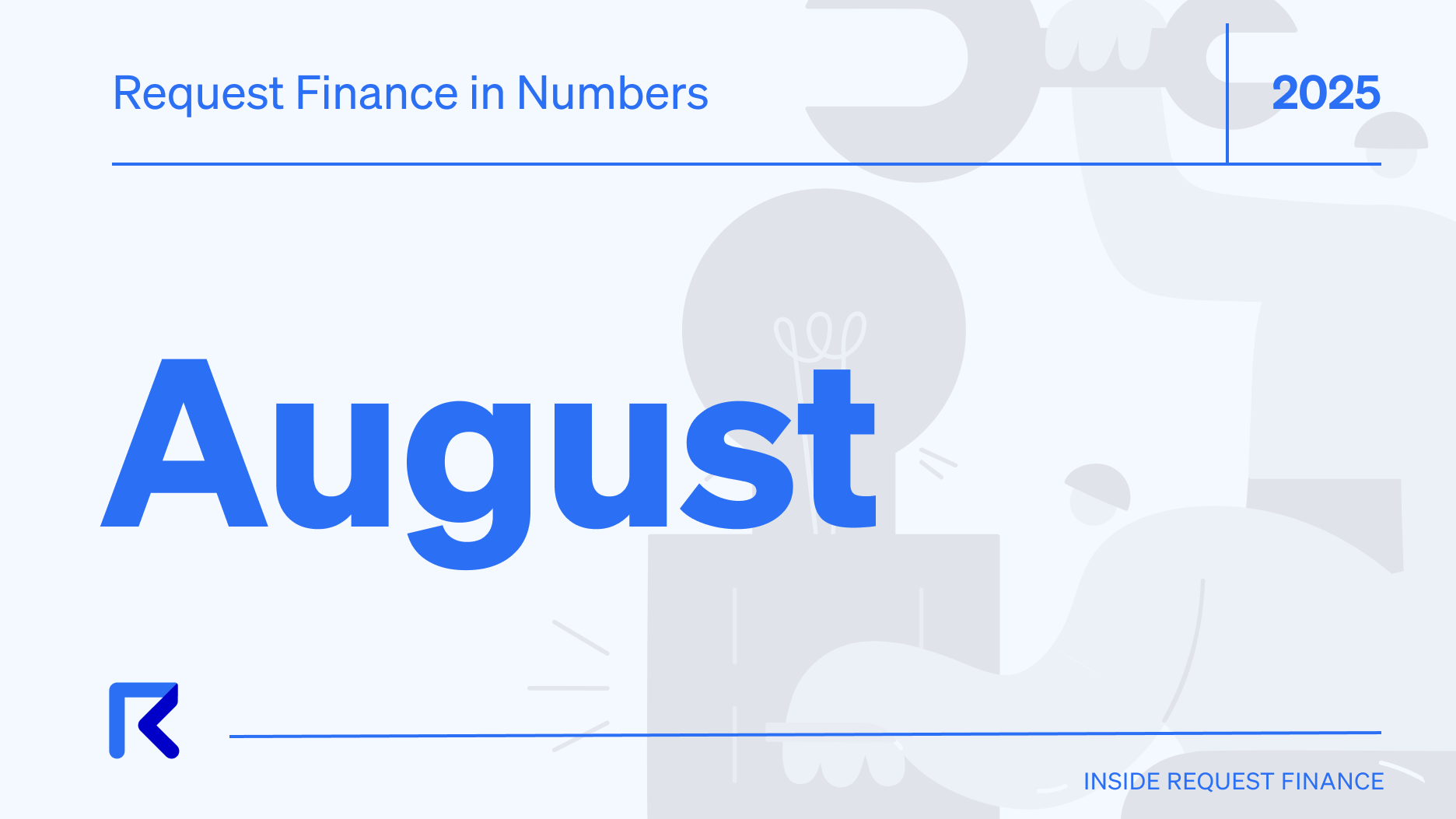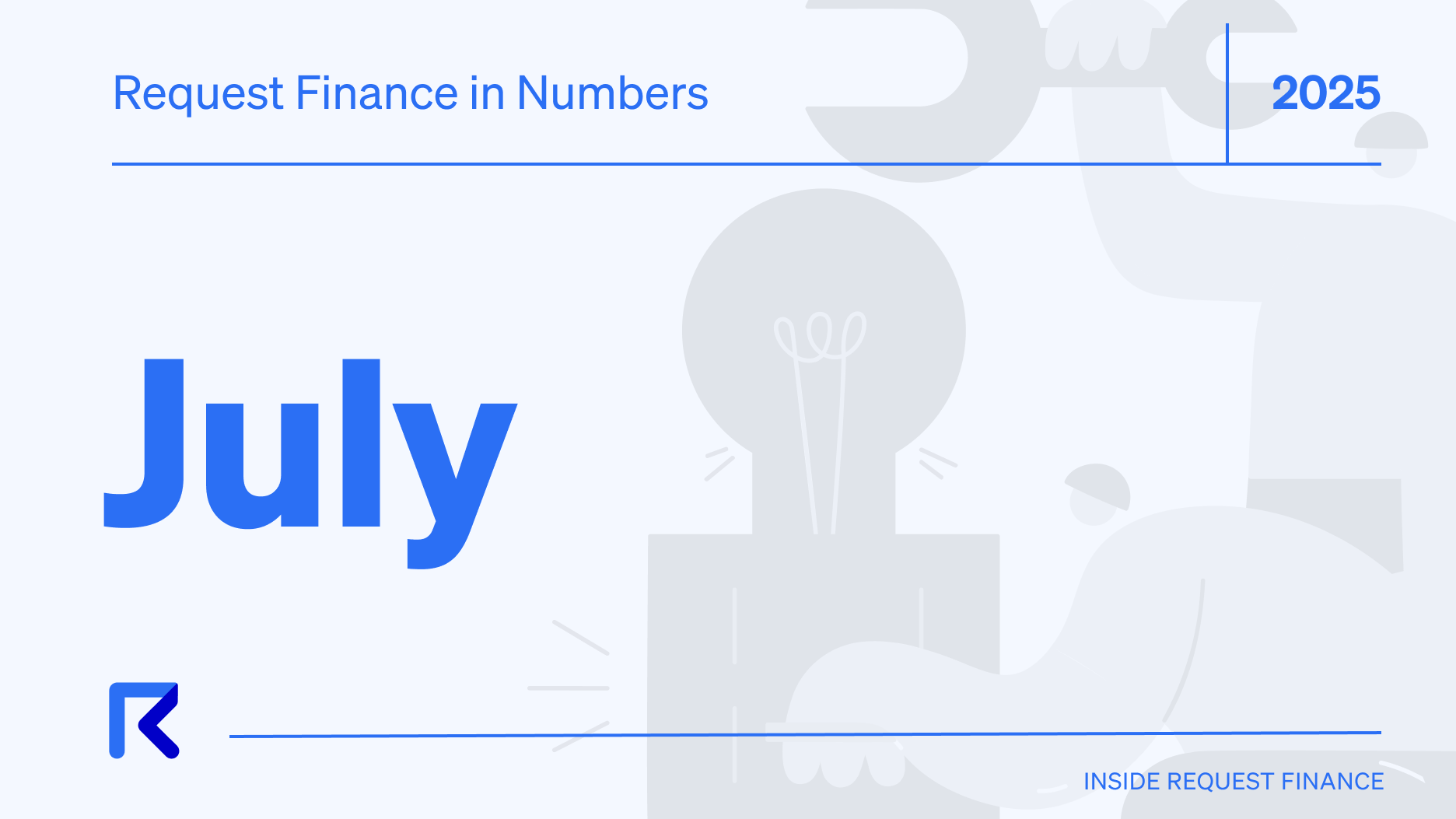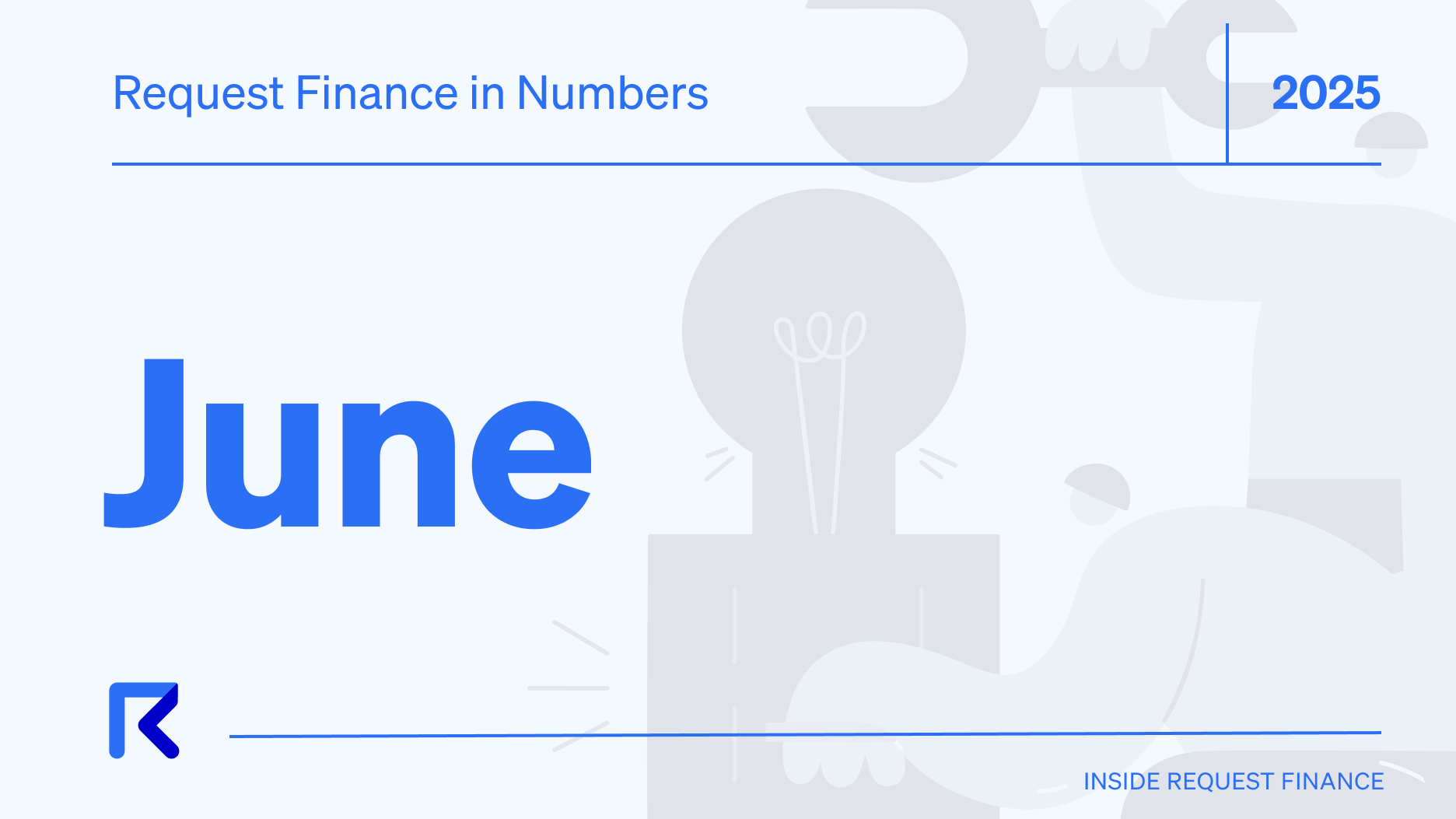Real World Use Cases of web3
Let's explore some of the most interesting web3 use cases of recent years.

Web3 is a decentralized web infrastructure that enables users to interact directly with each other, without the need for intermediaries. This is a revolution in the internet world, where businesses and individuals obtain data access and management rights in a serverless internet architecture free from the dominion of internet giants.
In this blog post, we will explore some of the most interesting use cases of web3 in the real world!
web3 is the most advanced stage of the internet
When the internet was conceived several decades ago, the vision of a truly democratized marketplace of opinions seemed finally within reach. However, due to technical and economical limitations, the first iterations of the web did not fully live up to this goal. Web1 was characterized by static HTML-based websites, and web2, the lifespan of the web that we live in right now, saw the rise of platforms owned and controlled by internet giants such as Google, Facebook or Amazon.
Web3 is the third iteration of the web and the first that enables users to interact directly with each other without being controlled by a single entity or platform. As a result, web3 provides a secure and transparent way of taking back control over the flow of information, data and transactions.
There are many applications of web3, ranging from distributed ledger technology and decentralized finance to non-fungible tokens and metaverses.
In this section, we will explore some of the most interesting use cases of web3 in the real world!
Distributed Ledger Technologies make transactions more efficient
One of the most important applications of web3 are Distributed Ledger Technologies (DLT). DLT is a type of database that is distributed across a network of computers allowing for faster and more secure data sharing between parties. One type of DLT is the blockchain, a secure link between data points where the hashed information stored on each block is verified by the interjoining blocks.
Individuals and businesses can use Distributed Ledger Technologies in a number of ways:
- Conducting transactions: Distributed Ledger Technologies allow fast and secure payments between two parties without paying fees to a bank.
- Smart Contracts: Like a written contract, digital smart contracts are used to record agreements between two or more parties, but in a decentralized, transparent and autonomous matter. As no intermediaries are required to setup smart contracts, they can help to streamline complex business relationships by automating tasks and eliminating the need for manual paperwork. As such, they become increasingly popular in a number of business relations, including e.g. real estate: Here, smart contracts can be used to automate the transfer of property ownership, the payment of taxes and fees, and the execution of other contractual obligations.
- DApps: Decentralized Applications function like traditional apps, but no single entity is in control of the data. Instead, the infrastructure of a DApp runs on a blockchain and is accessible by every user of the app. This can be used for financial transactions, identity management or supply chain tracking.
Ready to Supercharge Your Crypto Accounting?
Stop wasting time, manually creating journal entries. Automate your accounting now, and enjoy error-free reporting
Learn how to scale your company's crypto & fiat financial operations
Your financial complexities are our specialties. Schedule your free consultation today and discover how Request Finance can transform your financial operations
Simplify crypto and fiat financial operations today
Rely on a secure, hassle-free process to manage your crypto invoices, expenses, payroll & accounting.
Decentralized Finance is faster and cheaper than banks
Decentralized finance (DeFi) describes financial applications that run on top of a blockchain. The advantage of using DeFi applications is that they are typically much cheaper and faster than traditional financial services, allowing businesses to send funds directly to other parties without the need to involve intermediaries.
These applications are commonly used in DeFI:
- Yield farming: Yield farming protocols are a type of investment where users earn interest on their cryptocurrency holdings. This typically require users to “stake” their crypto assets in order to participate, meaning that they provide liquidity to a trading platform in order to earn rewards.
- Peer-to-peer relationships: By its very nature, DeFi strengthens peer-to-peer relationships by using decentralized protocols and smart contracts to facilitate direct, trustless interactions between parties, or peers. These interactions can be anything from lending and borrowing assets to token swaps and derivatives trading without having to go through centralized intermediaries.
- Digital Marketplaces: In a web3 setting, marketplaces can be used to buy and sell a wide variety of assets, including cryptocurrencies, tokens, and even software products. Decentralized and transparent, these marketplaces process transactions directly between buyers and sellers. In 2022, one of the most popular marketplaces is Compound, a platform that allows users to supply crypto assets as collateral and earn interest on their holdings.
NFT makes digital ownership possible
Non-fungible tokens (NFTs) are digital assets that are stored on the blockchain and can represent anything from artwork to in-game items and real-world assets. One of the most popular platforms for NFTs is Ethereum, which hosts a variety of different marketplaces and protocols for buying, selling, and transferring NFTs. Among these protocols is ERC-721, one of the most commonly used NFT-protocols to create unique tokens.
As NFTs are forgery-proof by nature, they allow for a number of use cases in web economics:
- NFTs in digital art: NFT provides a new way for artists and creators to sell their work in a completely decentralized manner. These transactions are typically conducted via NFT marketplaces such as OpenSea and Rarible.
- Video Gaming: NFT can also be used in video games as a way to trade in-game items. This is possible because each NFT represents a unique item that can be traded on a decentralized exchange.
- Supply Chain Management: Due to their ability to track data, NFTs can also be used to reduce costs and bottlenecks in the tracking of supply chains. This is done by storing data related to the production, shipping, and ownership of goods as an NFT on the blockchain. As each NFT is assigned a unique ID, everyone is able to pinpoint the location of each product as it moves through the supply chain.
DAOs empower organizations
A DAO is a decentralized autonomous organization that runs on smart contracts, meaning that it does not require a central authority to manage or oversee it. Instead, they are governed by their members who vote on proposals using tokens which are used to represent their stake in the organization. As DAOs are run fully digital, DAO contributors can operate fully remote, thus revolutionizing corporate governance and cooperation.
These web3 use cases are most common with DAOs. We have also written about the different types of DAOs and their common challenges here.
- Crowdfunding: When a project needs investments, DAOs can ask investors to contribute money. In return, investors receive DAO tokens that allow them to participate in further activities of the DAO. This truly democratizes the decision-making process as all decisions are made by the investors and not a central authority.
- Next-gen governance: By bringing decision-making power to all members, a DAO does not require a central body of authority. This eliminates the danger of making decisions that only benefit personal interests as opposed to the shared interests of the collective.
The Metaverse changes user interactions in online worlds
The Metaverse is a decentralized virtual world that runs on the blockchain. In the Metaverse, users can create their own digital assets, including avatars, and interact with each other in a completely trustless manner. This opens new possibilities for E-Commerce business that can use the metaverse to provide their goods and services.
This is how the Metaverse revolutionizes the web:
- Immersive virtual experience: In contrast to a text- and image-based form of communication to a community, the Metaverse takes user interaction to the next level. This means that businesses can represent themselves in more creative ways while keeping full control over the data and all transactions that take place in the Metaverse.
- VR and AR spaces: VR and AR are prime examples how the metaverse changes user interactions. For example, businesses are using VR to create virtual showrooms or product demonstrations. Augmented Reality can also be used by developers to create interactive 3D maps that users can explore in the metaverse.
- Digital self-representation: Within the metaverse, users can build an avatar that encapsulates their persona on a digital screen. This allows users to explore virtual worlds in a completely immersive way, either with a combination of a mouse and a keyboard, virtual reality headsets are through mobile apps.
GameFI revolutionized the gaming industry
GameFI is a web3-based gaming platform and financing hub that utilizes the blockchain to power its features. GameFI allows gamers to connect with each other and play games in a completely decentralized environment. The platform has its own in-game currency, which can be used to purchase items and services within the game world.
Due to its decentralized nature, GameFI offers several possibilities for advanced gaming:
- Game Launchpads: Launchpads are essentially blockchain-based platforms that enable developers to launch their games on a decentralized network. This allows smart contract-based gameplay could open new possibilities for in-game currencies, item trading, and more.
- Play-to-earn (P2E): This gaming model allows users to earn rewards for their participation in a given activity, usually through some form of game or challenge. In a web3 environment, this allows gamers to directly monetize their participation in a gaming activity and helps developers to create more engaging and immersive gaming experiences.
- In-game marketplaces with NFT: NFT marketplaces are becoming increasingly popular in the gaming world as they allow gamers to trade virtual assets and items with each other. As opposed to popular marketplaces such as Opensea, Enjin and Mintable, in-game NFT marketplaces keep all transactions within the game, which further strengthens user engagement.
Why accounting matters in a web3 environment
We have learned that web3 provides businesses with new possibilities to build peer-to-peer relationships on decentralized platforms. Naturally, these can be used to make a profit — but as in the traditional world of finance, bookkeeping plays a vital role in turning these profits into yields.
Accounting in a crypto environment used to be tedious work. Nowadays, with the development of web3 applications, it has become much easier. consola.finance has developed a software for the crypto industry that automatically import all your transactions from different wallets.
This way, you get a complete overview of your crypto portfolio in one place. You can also use consola.finance to generate reports, which is essential for any business operating in the crypto space.
To sum up, web3 provides businesses with new opportunities to build decentralized platforms and to tokenize assets. With the help of accounting software like consola.finance, these businesses can easily keep track of their finances and generate reports for various purposes. And as the technology continues to develop, we will see even more use cases of web3 emerge in the future.
Crypto finance tips straight to your inbox
We'll email you once a week with quality resources to help you manage crypto and fiat operations
Trending articles
Get up to date with the most read publications of the month.
Our latest articles
News, guides, tips and more content to help you handle your crypto finances.











